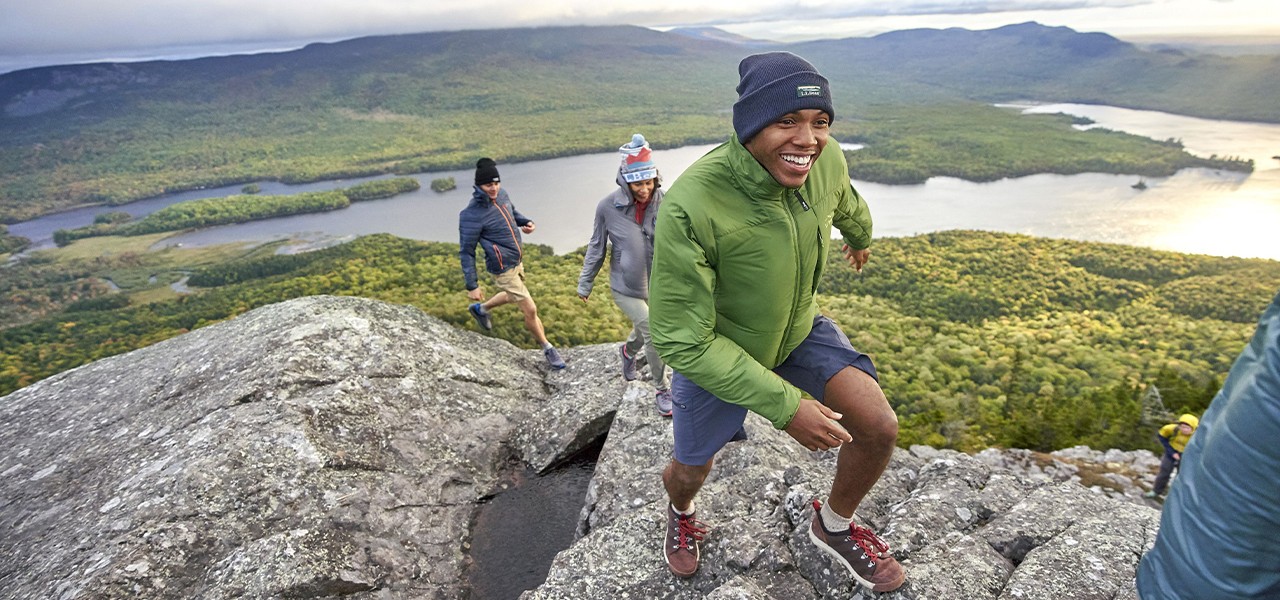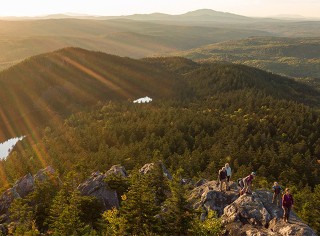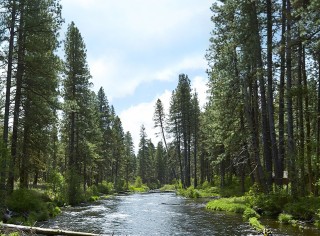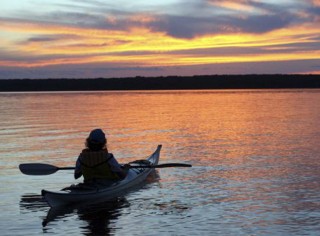Freeport, ME, February 24, 2021
Awe Together Now: How Being Outside Brings Us Together
We find ourselves nearly a year into living life during a pandemic, and we’ve all had to contend with some big shifts—whether we’re working from home full time, helping our kids keep up with school online, or spending little to no time with our friends, so much has changed. And it’s not a surprise that this can put a strain on our most important relationships.
After all this time isolated from (or… too close to) our loved ones, is there anything we can do to nurture these connections?
Research suggests we can turn to nature.
According to researcher Dr. Paul Piff, assistant professor of psychology and social behavior at UC Irvine, outdoor experiences can result in us having more positive behavior towards others. But why? One word: awe.
Awe is defined as a feeling of reverential respect mixed with fear or wonder. We most often experience this sensation when we are outside observing nature. More specially, when we are in the presence of something awe-inspiring—a magnificent sunset, a flock of birds effortlessly flying into formation, a Redwood that requires you to look all the way up—something important happens to us. We feel smaller. Researchers call this “the small self.”
The small self sees itself in relationship to something greater. And when we experience the small self, something else important happens. We become, what is referred as, prosocial. (Which is the social scientific way of saying we act in ways that are positive, helpful, and intended to promote things like social acceptance and friendship.) In short, we’re better to the people around us.
When you think about the kind of traits you want in a friend or a partner, what comes to mind? Kindness? Generosity? Compassion? Patience? These are the basis of prosocial behavior, and there is research to support how awe—our response to the great outdoors—creates the conditions for these traits.
Dr. Piff and his team conducted a series of experiments to look at the types of outdoor experiences that inspire awe and how that awe facilitates positive behavior towards others.
Their findings, summarized by Dr. Piff, are telling:
Our investigation indicates that awe, although often fleeting and hard to describe, serves a vital social function. By diminishing the emphasis on the individual self, awe may encourage people to forgo strict self-interest to improve the welfare of others. When experiencing awe, you may not, egocentrically speaking, feel like you're at the center of the world anymore. By shifting attention toward larger entities and diminishing the emphasis on the individual self, we reasoned that awe would trigger tendencies to engage in prosocial behaviors that may be costly for you but that benefit and help others.
Across all these different elicitors of awe, we found the same sorts of effects—people felt smaller, less self-important, and behaved in a more prosocial fashion. Might awe cause people to become more invested in the greater good, giving more to charity, volunteering to help others, or doing more to lessen their impact on the environment? Our research would suggest that the answer is yes.
While there is more research to be done on what this means for larger groups of people, we can say with confidence that our time outside can strengthen bonds with our friends and family. And most encouragingly, as demonstrated by Dr. Piff and others, you don’t have to go whitewater rafting or hike a mountain trail to cultivate awe. It’s the simple encounters with nature that inspire awe and its benefits, which means there is little in our way to developing greater kindness and compassion for the people we love.
Related Stories






